Science and Technology
Bachelor's
2 January
15 April
30 May
1 September
- The University of Tartu belongs to the top 350 universities in the world (see Rankings and Surveys).
- You can choose between three specialisations: genetics and biotechnology, bioengineering and robotics, or chemistry and materials science. You do not have to decide immediately: try out different fields and make your choice in the second year.
- Explore a wide range of study-related extracurricular activities, including participation in student satellite project ESTCube and the biggest synthetic biology competition in the world, iGEM, which was won by our students in 2023.
- Graduates can continue their studies in natural science or work for technology companies.
Today's demanding world requires a dynamic approach. The programme's strength is a broad understanding and synthesis of the basics of natural and technological sciences. Studying in English opens an international horizon and provides a strong basis for further studies.
The three-year international bachelor's programme in Science and Technology offers innovative content, drawing from key areas taught in the Faculty of Science and Technology. It provides a broad overview of natural and exact sciences and technologies.
In the first year, students study subjects that provide good basic knowledge and prepare them to work with modern technologies and materials. Later, it is possible to choose a suitable field of specialisation based on the knowledge acquired about different areas. Students can choose a combined specialisation in genetics and biotechnology, bioengineering and robotics, or chemistry and materials science.
You can follow the programme on Facebook here, Instagram here and YouTube here.
iGEM
The iGEM competition is an international competition where university/high school teams provide potential solutions to world problems using synthetic biology. It was first organised in 2003 by the Massachusetts Institute of Technology (MIT) and has become the largest synthetic biology competition since then.
Since 2017, the Science and Technology programme students have been able to join the Tartu TUIT iGEM team and work on an innovative research project.
The iGEM season starts in January/February with idea brainstorming and finishes with the Giant Jamboree at the end of October/beginning of November. The team works on each side of the project, from developing the idea, planning and making experiments, human practices, and public engagement to searching for sponsors and making the team's website. Moreover, selected team members get a chance to present the project at the Grand Jamboree in Paris, France.
While performing the project, students get invaluable experience and acquire practical, social, and teamwork skills, and their transition from students to young researchers accelerates.
Take a look at the previous projects (click on years to see the projects): 2023 (Grand prize, Best conservation project, Best measurement, Best education nomination, Best Wiki nomination, Best Presentation nomination, gold medal), 2022 (Best wiki nomination, Silver medal), 2021 (gold), 2020 (gold), 2019 (gold), 2018 (silver), 2017 (silver).
You can follow the Tartu TUIT team on Facebook here and Instagram here.
Read more about the iGEM competition here.
Extracurricular activities
The rhythm and environment of the university town are great for studying and living student life to the fullest. There is plenty of excitement; for example, students can join the Science Theatre (read more here) to find new acquaintances and discover and demonstrate fascinating phenomena of different fields of science. The student satellite ESTCube (read more here) welcomes new members, and the Robotics Club offers a chance to improve and apply knowledge about robotics.
Programme highlights in media
- Watch here the programme director talk about the bachelor's programme in Science and Technology during Virtual Open Day 2024.
- Watch here the programme director talk about the bachelor's programme in Science and Technology during the Online Open Doors Week 2022.
Upon completing the programme, students will receive a Bachelor of Science (BSc) degree.
Curriculum version:
More info: Study Information System
Institute of Bioengineering
The Institute of Bioengineering was established in 2023 and began operating on 1 January 2024. Currently, four research groups have joined the newly formed institute:
- Prof. Mart Loog’s Lab
- Prof. Andres Merits’ Lab
- Prof. Hannes Kollist Lab
- Assoc. Prof. Kaspar Valgepea Lab
You can get to know all the labs here.
Previously, the bachelor's programme in Science and Technology was part of the Institute of Technology.
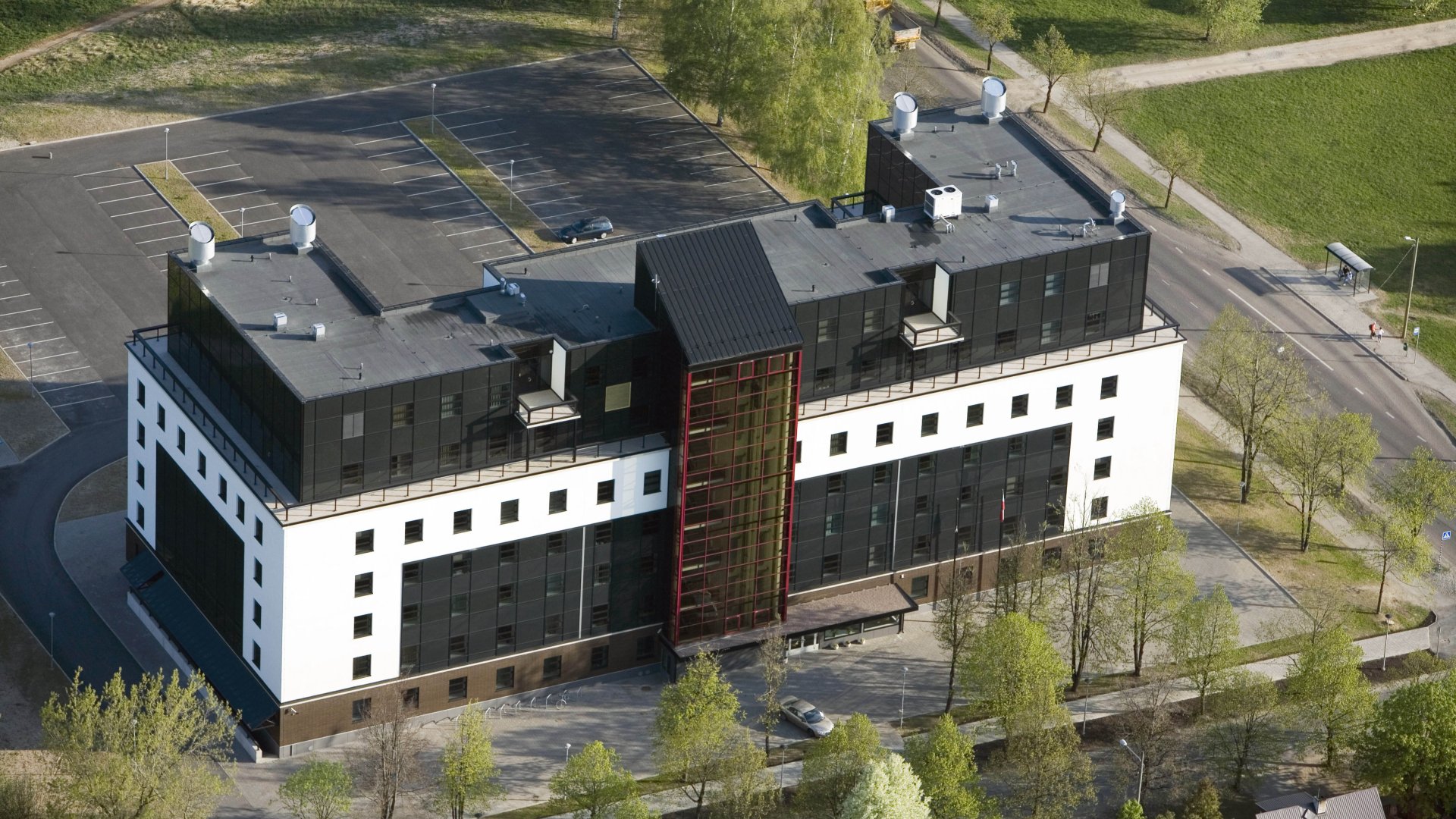
Visit us virtually
Explore Tartu, the Institute of Bioengineering, and the student dormitories through the university's virtual tour here.
Nooruse 1 study building tour (Institute of Technology and Institute of Bioengineering)
The general objective of the programme is to provide students with a broad-based academic education in natural sciences, which enables them to continue studies at the master's level in any field of natural science or work in professions that require basic knowledge and working skills. For example, graduates can work at monitoring centres, different technological enterprises, and laboratories as technologically competent lab personnel members.
There are also opportunities to continue at the master's level at the University of Tartu. We are offering the following international master's programmes in science and technology:
- Bioengineering (read more here)
- Excellence in Analytical Chemistry (read more here)
- Materials Science and Technology (read more here)
Apart from the University of Tartu’s master’s programmes, students can pursue further studies at top universities worldwide. Our alumni have continued their education at institutions such as the University of Notre Dame, the University of Cambridge, Aalto University, ETH Zürich, Uppsala University, EPFL, PSL Research University Paris, the University of Heidelberg, and the University of Copenhagen.
Beyond academia, graduates can enter the deep-tech industry, securing positions at leading companies like Icosagen, Solis Biodyne, etc. These enterprises operate at the forefront of biotechnology and molecular sciences, offering roles in research and development, data science, product innovation, and technological consulting.
The programme’s strong foundational knowledge also enables graduates to explore diverse career paths beyond science and technology. Analytical thinking, problem-solving, and technical expertise are highly transferable, opening opportunities in various fields and adapting to evolving job markets.
Admission requirements for Science and Technology
- higher secondary education – please see our country-specific document requirements
- English language proficiency – please see our acceptable tests and exempt categories
- higher/senior secondary school result in Mathematics
- higher/senior secondary school result in either Biology, Chemistry or Physics
NB! The restrictions for the citizens of the Russian Federation are specified here.
Applications are evaluated based on
- the higher/senior secondary school result in Mathematics (yields 20% of the final score)
- the higher/senior secondary school result in either Biology, Chemistry or Physics – highest result will be considered (yields 20% of the final score)
- score of the motivation letter (yields 30% of the final score)
- score of the entry test (yields 30% of the final score)
We accept the following results:
-
state exam result or final grade in Mathematics (in case you have already graduated) or
-
current grades in Mathematics (in case you have not yet graduated), which means the grades for Mathematics for all your higher/senior secondary school years up until the moment you submit the application. NB! Applying with current grades is only available for some countries.
Who can apply with the current grades?
Applicants from the member countries of EU, OECD, CIS (СНГ), Ukraine, Georgia, IB Diploma programme or graduating with A-level exams who are graduating in the upcoming spring/summer and having their secondary school certificate issued later than the application deadline should electronically submit their most recent grade list (grades for all your high school years up until the moment of application) by the application deadline, 15 April. The grade list should be supplemented by an official statement from the issuing school indicating current enrolment and expected graduation date. Admitted candidates are required to post the certified copies of their graduation documents as soon as these have been issued (these must reach us by the end of July at the latest).
NB! Applicants from other countries can only apply if they have already obtained their final graduation documents and can submit these by the application deadline, 15 April.
We accept the following results:
-
state exam result or final grade in either Biology, Chemistry or Physics (in case you have already graduated) or
-
current grades in either Biology, Chemistry or Physics (in case you have not yet graduated), which means the grades for either Biology, Chemistry or Physics for all your higher/senior secondary school years up until the moment you submit the application. NB! Applying with current grades is only available for some countries.
Who can apply with the current grades?
Applicants from the member countries of EU, OECD, CIS (СНГ), Ukraine, Georgia, IB Diploma programme or graduating with A-level exams who are graduating in the upcoming spring/summer and having their secondary school certificate issued later than the application deadline should electronically submit their most recent grade list (grades for all your high school years up until the moment of application) by the application deadline, 15 April. The grade list should be supplemented by an official statement from the issuing school indicating current enrolment and expected graduation date. Admitted candidates are required to post the certified copies of their graduation documents as soon as these have been issued (these must reach us by the end of July at the latest).
NB! Applicants from other countries can only apply if they have already obtained their final graduation documents and can submit these by the application deadline, 15 April.
Please write a brief motivation letter (in English, maximum of 4 600 characters with spaces) based on the following points:
1. Which of the three specialisations interests you most and why?
Science and Technology programme has three specialisations:
- genetics and biotechnology
- bioengineering and robotics
- chemistry and materials sciences
2. Which elective courses would you like to take? (Elective courses need to be chosen from the list of courses of elective module of Science and Technology programme).
3. Why are you particularly interested in this Science and Technology bachelor’s programme?
4. In which role do you see yourself in your future job after completion of the programme and what is your personal motivation to study Science and Technology?
5. How do you plan to implement the skills to be gained from the programme in your future career?
Evaluation criteria:
· fit between the student’s goals and the programme (40 %)
· analytical and argumentation skills (40 %)
· fluency of written English (20 %)
The maximum score for the motivation letter is 100 points and minimum positive score 51 points.
The admission test for the Science and Technology program will be held online. Candidates who have got a positive score for the motivation letter (above 51%) qualify for the test. The aim of the test is to evaluate applicant’s knowledge in Mathematics, previous experience and knowledge in the fields of either Biology, Chemistry, Physics etc., specialization fit/motivation, analytical, communication and argumentation skills.
The written part of the admission test will be taken on the testid.ut.ee platform between 9-10 May 2025. The oral part of the test will be held in a designated timeframe in Zoom between 13-21 May 2025. Eligible candidates will receive a link to the platform along with all required information via email. NB! It is the candidates’ responsibility to check email for the instruction regarding the admission test.
The Admission Test consists of 2 parts: written and oral
1. written part i.e. Mathematics (5 questions, 50%)
2. oral part (10‐20 minutes of discussion, 50%)
The test is comprised of different types of assignments, including but not limited to multiple choice questions, pair matching, short answers, answers to mathematical equations (numerical answer), essay type of answer to the questions.
Candidate will have 60 minutes for the written part (Math section). For oral part of the admission test candidate will have 10‐20 minutes.
During the test you may use a pen, paper, calculator, list of formulas, additional materials. Every candidate will have ONE attempt to complete the test. The test cannot be redone. In case of lost internet connection, the candidate will not be able to restart the test. Make sure you have a stable internet connection before starting the test.
Evaluation criteria
The test can give 100 points in total (50 points per section). To pass the test you must get at least 26 points in every section. No specific feedback to every question will be provided, just the overall score for every section and total result.
To calculate final admissions score, each indicator is assessed and expressed in points. When ranking applicants, the score of the motivation letter (30%), result in Mathematics (20%), result in either Biology, Chemistry or Physics (20%) and the score of the entry test (30%) are taken into account. The application will be considered for the admissions ranking if a total score of 66 points or higher is achieved. The maximum total score is 100 points.
Further information on assessing candidates’ academic performance and calculating admissions’ score.
How to apply
The following information applies to international students and Estonian students who graduated abroad:
The following documents must be submitted electronically via DreamApply by the application deadline:
- online application
- motivation letter
- official certified copy of the secondary school certificate and grade list in the original language (must include description of the grading scale). NB! Applicants graduating in one of the the member countries of EU, OECD, CIS (СНГ), Ukraine, Georgia, Moldova, IB Diploma programme or graduating with A-level exams in the upcoming spring/summer and having their secondary school certificate issued later than the application deadline should electronically submit their most recent grade list (grades for all your high school years up until the moment of application) by the application deadline, 15 April. The grade list should be supplemented by an official statement from the issuing school indicating current enrolment and expected graduation date. Admitted candidates are required to post the certified copies of their graduation documents as soon as these have been issued (these must reach us by the end of July at the latest).
NB! Applicants from other countries can only apply if they have already obtained their final graduation documents and can submit these by the application deadline, 15 April. - official certified translation of the secondary school certificate and grade list into English
- proof of English language proficiency
- copy of valid international passport page stating the applicant’s personal particulars
- confirmation/receipt of application fee payment (if applicable). All international applicants are required to pay the application fee EUR 100, unless they have completed the previous study level in Estonia. An application will only be processed after the fee has been received by the UT.
Submitted applications can not be edited. It is only possible to upload new documents (e.g. graduation certificates). Applicants will receive feedback and notifications through the DreamApply system to their e-mail. Incomplete applications or those submitted by e-mail will not be considered for admission.
Guide to submitting an electronic application on DreamApply.
NB: The University of Tartu has no official partnerships with agents or educational representatives. We strongly recommend applying directly to the university without the help of unauthorised third-party entities. Should you use such a service, please ensure that your application's contact information is your personal details (your e-mail, phone number, etc.).
The evaluation of applications will be made based on the electronic copies added to DreamApply. A general ranking list will be formed based on the electronically submitted applications and admission results (including offers) will be announced to all applicants personally via DreamApply by 30 May at the latest. Admitted candidates are expected to accept or decline the offer in DreamApply in 7 days. If the decision is not communicated to UT via DreamApply by the stipulated deadline, UT reserves the right to withdraw the admission offer.
NB! It is not possible to postpone/defer the beginning of studies to the next academic year.
Terms and conditions of the admission offer
Admission offers are conditional. This means that there are conditions in the offer which the applicant needs to fulfil in order to be admitted (e.g. sending application documents by post; obtaining the required level of education). If the conditions are not met, UT has the right to withdraw the offer. Also, UT reserves the right to withdraw or amend any offer or revoke the matriculation of a student, if it becomes evident that the application contains fraudulent information, the qualification does not provide access to the chosen study programme or the student is found to have omitted key information from the application. Should such circumstances occur, UT will not be liable for any material or immaterial loss which the student may suffer as a result.
Once the admission results have been announced, all admitted students are required to send the application documents by post to: Student Admissions, University of Tartu, Ülikooli 18-133, Tartu 50090, ESTONIA.
The documents are expected to be mailed only by those receiving the admission offer (unless instructed otherwise by the admissions staff). The documents must reach the university within 3 weeks from the announcement of the offer. If the application documents do not reach us by the deadline, the university has the right to withdraw the admission offer. Applicants will be informed when their documents have arrived.
Requirements for educational documents
All copies of educational documents (diplomas and Diploma Supplements/transcripts) must be officially certified. By certified we mean that the copies should bear an original signature and seal of the authority certifying that these are true copies of the original document(s). The copies can be certified either 1) by an authorised official of the issuing institution, or 2) by a notary, or 3) with an Apostille attached. NB! Country-specific requirements may also specify the way documents from certain countries must be certified.
Please note that UT does not accept simple copies made on the basis of already certified copies (primary copies are needed).
All admitted students are required to present their original qualification certificates upon arrival (unless these were sent directly from the issuing institution).
Paying the tuition fee (applicable to those receiving a fee-based study place offer)
- EU/EEA/Swiss citizens are required to pay the fee for the first semester once they arrive in Tartu (by 20 September at the latest after signing the fee contract, please read more here).
- Admitted students from other countries are required to pre-pay half of the first semester's tuition fee. The invoice along with the pre-payment deadline and payment details will be sent to applicants via DreamApply after they have accepted the admissions offer and the University has received the hard copies of the application documents. Second part of the fee is due on 20 September. NB! The official admission letter (necessary for visa application) will only be issued once the University of Tartu has received the pre-payment.
- NB! Once you have been offered a fee-based study place, be aware that it will not be changed into a fee waiver study place. By transferring the pre-payment to the university, you confirm that you have informed yourself about the process of the visa and temporary residence permit application and you are able to arrive in Estonia by the start of the academic year. If you have any questions please contact studentvisasupport@ut.ee.
The official admission letter will be sent to admitted students electronically via DreamApply only after the admissions office has received and reviewed hard copies of the application documents, and received the tuition fee pre-payment (if a pre-payment was required, please see step 3 for more details).
NB! The electronic admission letter is also sufficient for non-EU students for applying for visa/residence permit at an Estonian embassy.
Once the admission letter is issued, accepted students may proceed further with arranging their arrival. All non-EU students should first consult information on the process of visa and temporary residence permit application to be sure, as where and when the relevant documents need to be applied. Note that housing at the UT dormitories can be applied during a limited period of time, unless specified otherwise on the website.
NB! Admitted students who are not citizens of an EU or EEA country or Switzerland need to make sure they obtain the Estonian long-term visa on time in order to be able to participate in the orientation programme for international students held in the last week of August. They are also required to visit the Admissions Office in person to complete their arrival registration by September 1, 2025, at the latest. Failure to do so will result in the revocation of their admission decision and visa.
For housing alternatives please find further information on Tartu Welcome Centre website. Travel information can be found here. Based upon common queries, the most important information has been summarised into a pre-arrival information website UT Getting Started.
Estonian applicants should apply via National Admission Information Systems (SAIS). Further information in Estonian is available here.
The university admits an applicant to the Science and Technology curriculum under special conditions if the applicant participated in an international Olympiad (see the list below) as a year 11 or 12 student.
Applying as a special conditions applicant means that after submitting your application, you do not need to take entrance exams, and your application will not be evaluated based on final grades or exam results.
To apply under special conditions, you are required to:
1) submit your application by the application deadline through the DreamApply system like all other applicants. Please see the list of documents required above, >Step 1 | Submitting the online application;
2) upload a diploma or a certificate confirming your participation in an Olympiad or competition;
3) after submitting your application, please inform the Admissions Office by e-mail at admissions@ut.ee that you wish to apply under special conditions. It will be reviewed by the admission coordinator.
International Olympiads and competitions
- Baltic Geography Olympiad BGEO
- Baltic Chemistry Olympiad BChO
- Baltic Olympiad in Informatics BOI
- European Physics Olympiad EuPhO
- European Geography Olympiad EGEO
- European Union Contest for Young Scientists
- European Olympiad of Experimental Science EOES
- European Girls’ Olympiad in Informatics EGOI
- European Girls’ Mathematical Olympiad EGMO
- European Student Companies Competition JA-YE Europe
- Mathematics Competition Baltic Way
- International Astronomy and Astrophysics Olympiad IAAO
- International Biology Olympiad IBO
- International Philosophy Olympiad IPO
- International Physics Olympiad IPhO
- International Geography Olympiad IGEO
- International Olympiad in Informatics IOI
- International Chemistry Olympiad IChO
- International Environmental Project Olympiad INEPO
- International Telia Cyber Battle of Nordic-Baltic
- International Linguistics Olympiad ILO
- International Mathematical Olympiad IMO
- International Olympiad in Artificial Intelligence IOAI
Terms and procedure for application under special conditions are specified on Admission Rules (clause 73.1.1 and annex 4).
Contacts
Ask about the admission requirements and application process
Find out what awaits you at UniTartu
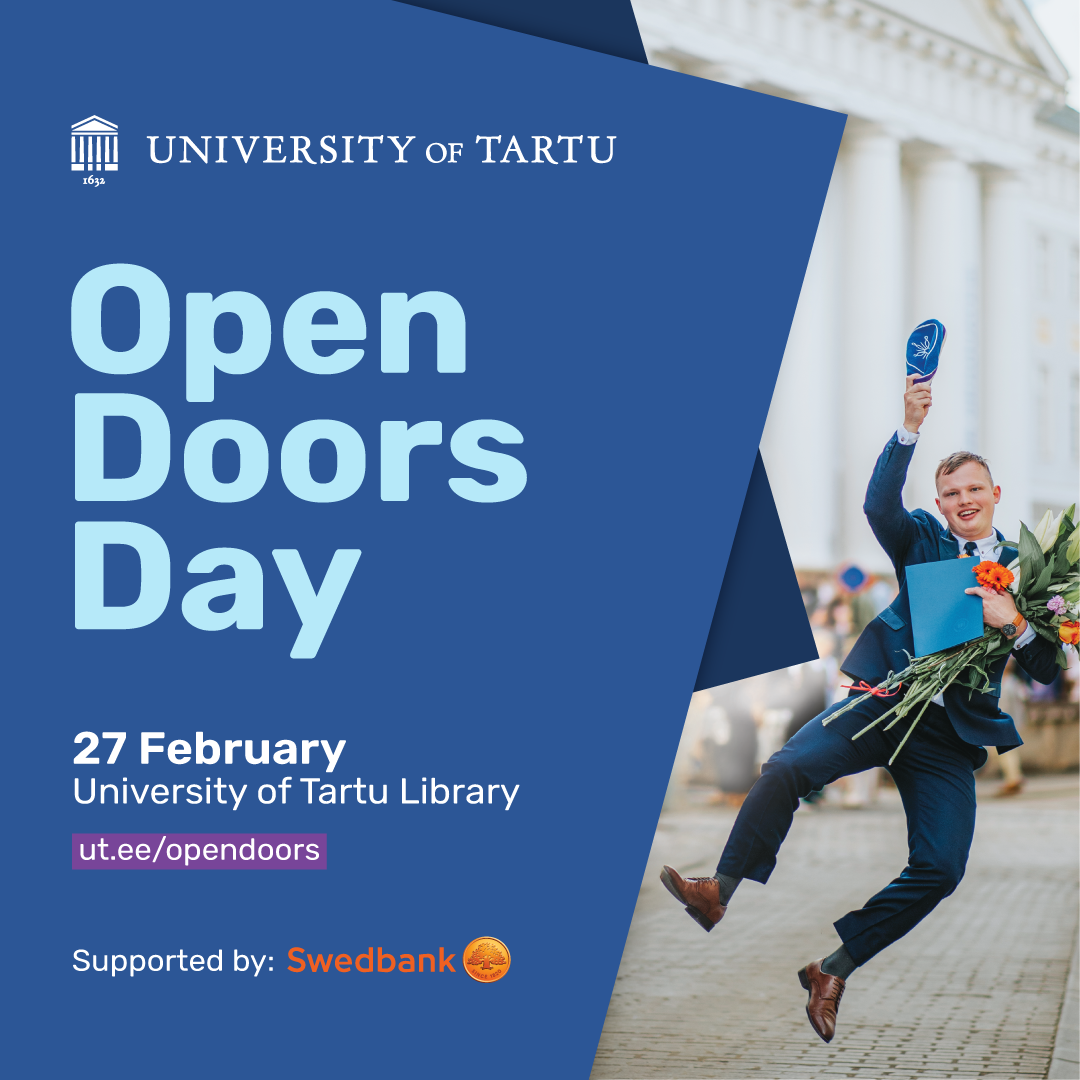
Join info events
Learn more about the university and its study programmes by attending our info events for future students. Our staff also attends international fairs and info sessions.
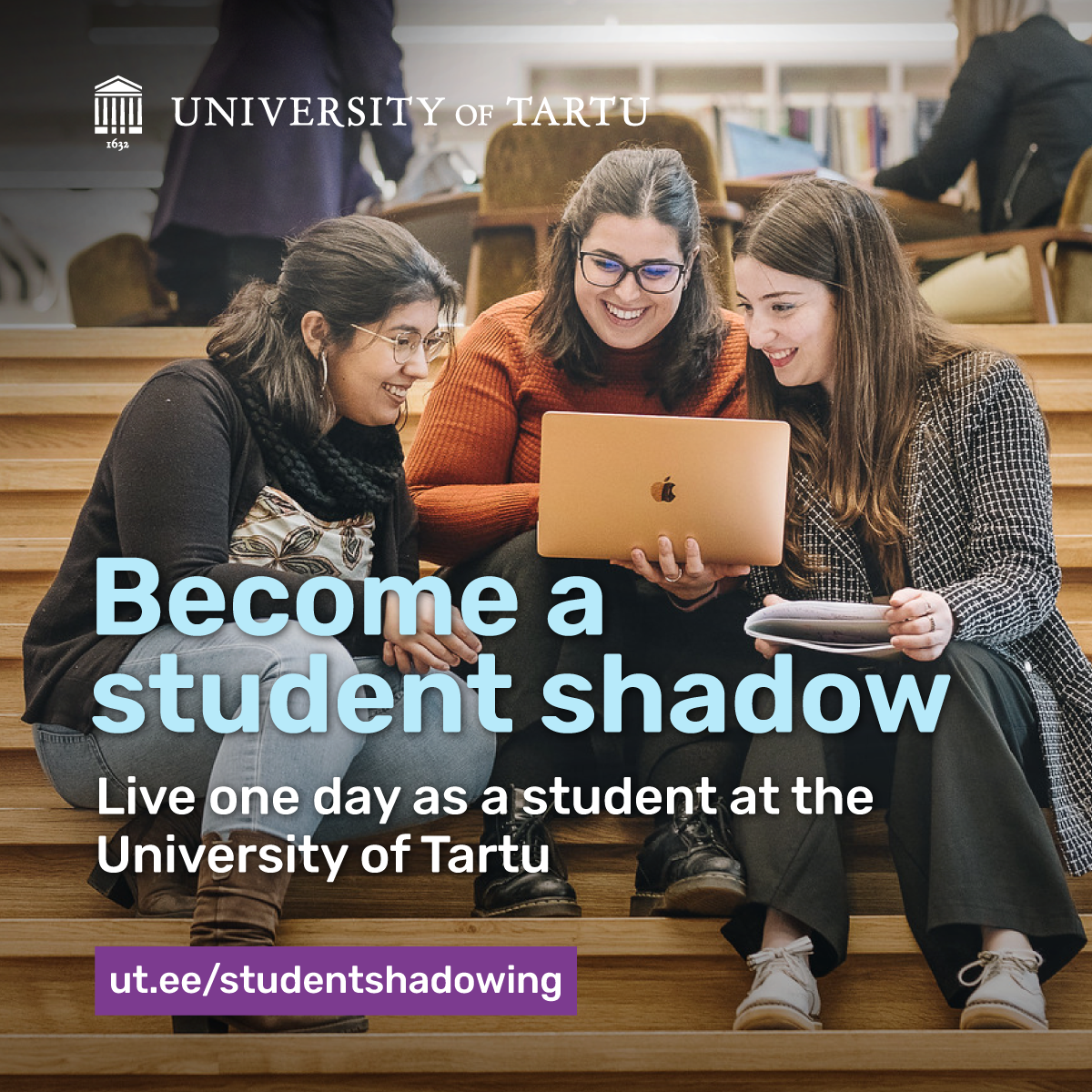
Spend a day as a student
During the academic year, you can spend a day with a current student in your field of interest, giving you a firsthand look at student life and the University of Tartu.
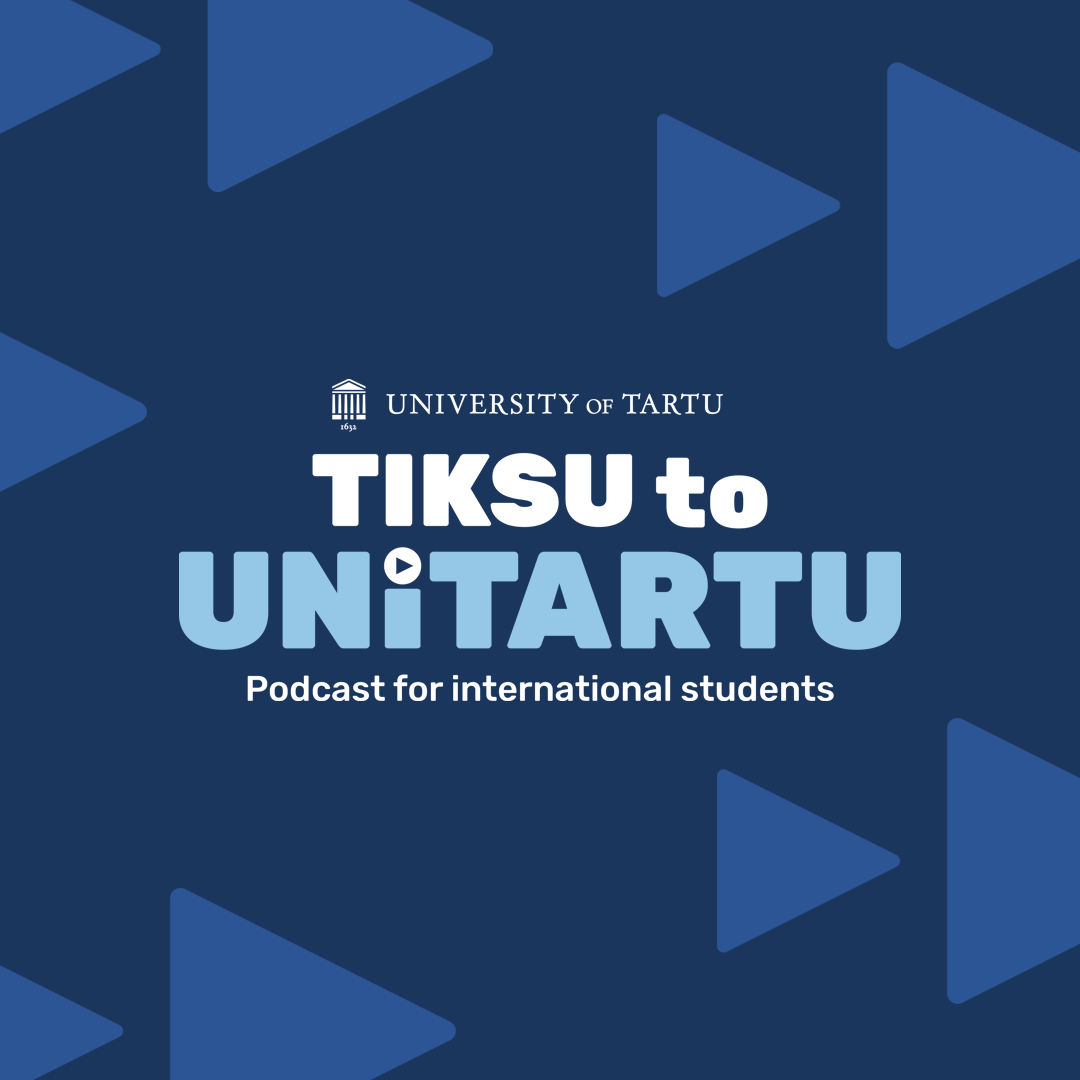
Listen to the podcast
The "Tiksu to UniTartu - Podcast for International Students" covers topics such as housing, student organisations, healthcare, etc.
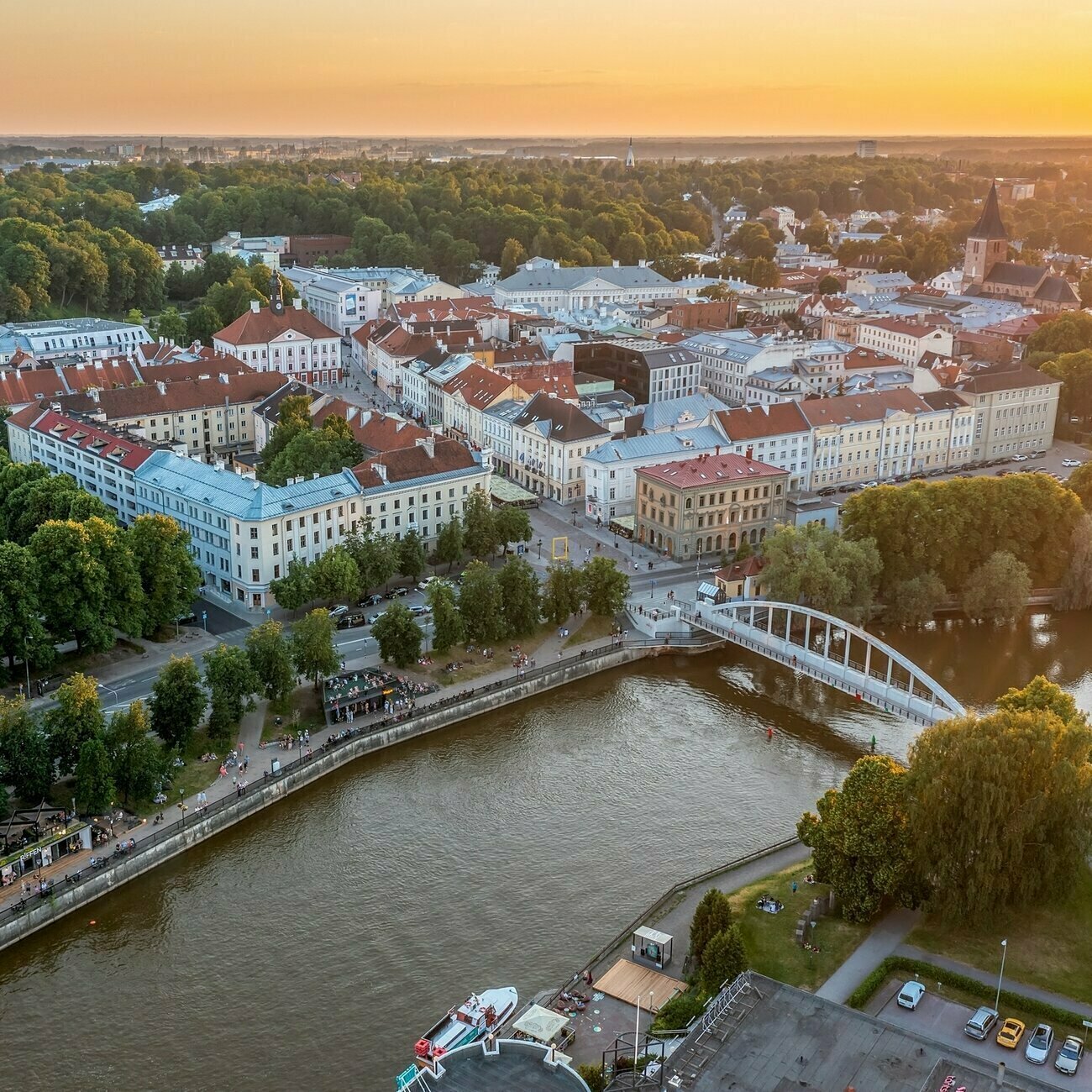
Visit the campus
Visiting the campus gives you a great understanding of what it would be like to study here. You can visit us throughout the year.
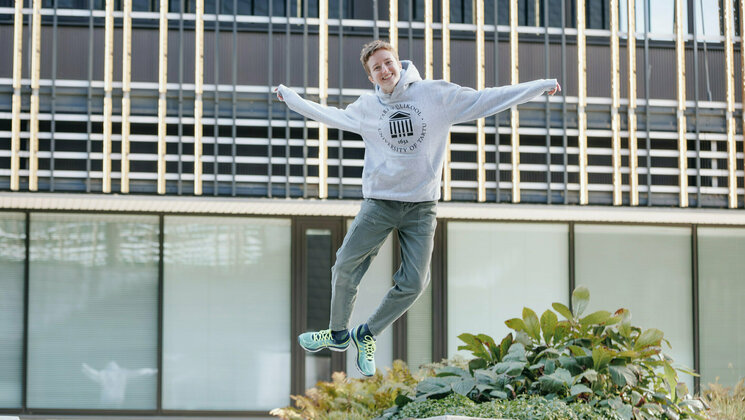
07.02.2025





